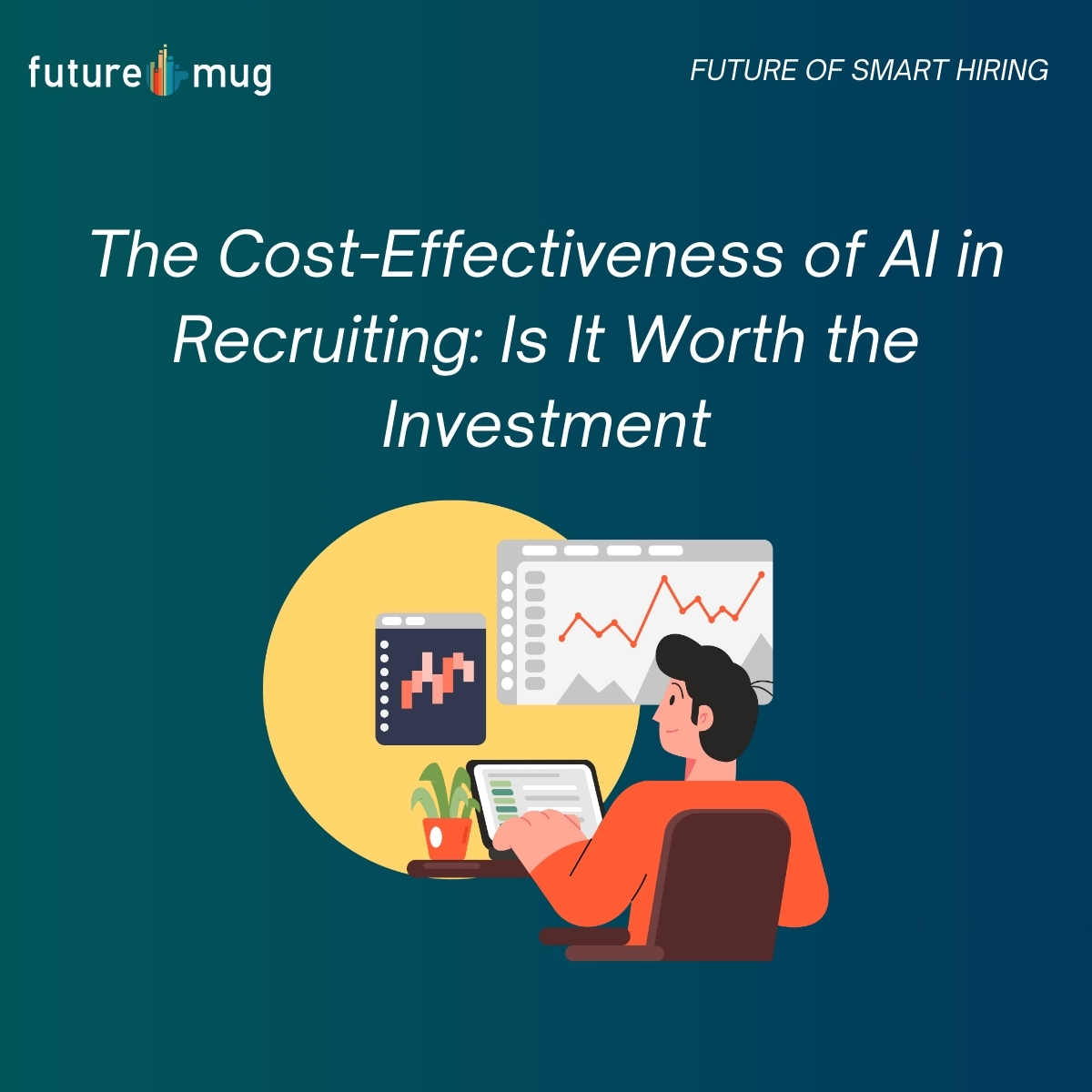
The Cost-Effectiveness of AI in Recruiting: Is It Worth the Investment?
Artificial intelligence (AI) is transforming the hiring landscape, offering innovative solutions that
streamline and enhance traditional recruitment processes. While implementing AI in recruiting
requires an initial investment, its long-term cost-effectiveness and value are becoming
increasingly evident. From automating repetitive tasks to improving candidate screening,
AI-driven recruitment can save time, reduce costs, and ultimately improve hiring outcomes. But
is it worth the investment? Here’s a deep dive into the cost-effectiveness of AI in recruiting and
the benefits it brings.

1. Reducing Administrative Costs
Recruitment can be a time-intensive process, with significant administrative tasks involved in job
posting, resume screening, interview scheduling, and follow-ups. AI solutions, such as chatbots
and automated workflows, handle these tasks efficiently, reducing the need for manual
intervention. Chatbots can answer candidates’ common questions 24/7, provide application
updates, and help manage the hiring process in real-time, leading to a better candidate
experience with minimal HR involvement.
Automated resume screening tools use machine learning algorithms to filter resumes based on
predefined criteria, identifying qualified candidates faster than a manual review could. By
automating these repetitive tasks, companies reduce the workload on HR teams, allowing them
to focus on more strategic functions like interviewing, onboarding, and talent development. This
not only saves labor costs but also shortens the hiring cycle, leading to quicker hires and a
reduced need for extended candidate searches.
2. Improving the Quality of Hires
AI-driven recruitment tools leverage data to analyze candidate profiles more accurately, using
metrics that go beyond traditional criteria such as education and experience. AI can assess soft
skills, cultural fit, and predictive performance by analyzing a range of factors from assessment
scores to communication style in interviews. This data-driven approach ensures companies find
candidates who are a better fit for the role and the organization, which ultimately reduces
turnover rates.
High turnover can be a costly problem, leading to lost productivity, additional hiring expenses,
and onboarding costs. AI can mitigate this issue by identifying candidates more likely to
succeed and stay in their roles long-term. By improving hire quality, companies experience cost
savings in reduced turnover and benefit from a more stable and productive workforce.
3. Enhanced Candidate Experience
A positive candidate experience is crucial for maintaining a strong employer brand, and AI can
help companies enhance this experience efficiently. From automated updates about the
application process to virtual assessments and AI-led initial screenings, candidates appreciate a
quick, clear, and responsive process. AI-enabled virtual assistants guide candidates through the
process, answer questions promptly, and even schedule interviews, creating a smoother, more
personalized experience.
Happy candidates are more likely to reapply in the future, refer others, and share positive
feedback about the company, enhancing the employer brand and reducing future recruiting
costs. This increased efficiency not only boosts satisfaction but also prevents the costs
associated with a negative reputation, helping to attract top talent with minimal effort.
4. Reducing Bias and Ensuring Compliance
One of the biggest challenges in recruitment is managing unconscious biases that can lead to
unfair hiring practices and increased compliance risks. AI in recruiting, when properly trained,
can significantly reduce human biases by focusing solely on skills, experience, and
qualifications. By standardizing assessments and evaluations, AI can ensure that all candidates
are judged on the same criteria, promoting diversity and inclusion.
Reduced bias has long-term cost benefits, as diverse teams tend to be more innovative,
productive, and adaptable. Additionally, AI-driven recruiting tools can maintain documentation
and data records, ensuring compliance with employment laws and regulations. This reduces the
risk of legal issues and penalties, ultimately saving companies from potential costs associated
with discrimination claims or regulatory violations.
5. Long-Term ROI of AI Investments
While AI in recruiting requires an initial investment in tools, training, and implementation, the
long-term return on investment (ROI) can be substantial. AI technology in recruiting can shorten
time-to-hire, which means positions are filled faster, productivity increases, and the costs of
vacancy are minimized.
Additionally, automated hiring tools improve scalability, allowing recruitment efforts to expand or
contract as needed. This adaptability helps businesses manage costs by scaling their workforce
quickly during growth phases without overburdening HR teams. In a tight labor market, the
agility provided by AI enables companies to capture top talent before competitors, providing an
edge that justifies the investment.
6. Challenges to Consider
Despite its benefits, it’s essential to consider potential challenges in implementing AI for
recruiting. AI solutions require proper setup, calibration, and continuous monitoring to ensure
fairness and accuracy. Algorithms must be carefully trained to avoid inadvertently replicating
existing biases. Further, integrating AI with existing recruitment software may require technical
expertise and an adjustment period for HR teams.
However, with thoughtful implementation and regular updates, these challenges can be
managed. The benefits of enhanced efficiency, reduced costs, improved hiring quality, and a
better candidate experience make AI a worthy investment for most companies.

Conclusion
AI in recruiting is proving to be a cost-effective solution for businesses of all sizes. By
automating time-consuming tasks, improving the quality of hires, enhancing candidate
experience, and reducing biases, AI offers measurable benefits that extend beyond simple cost
savings. Although the initial investment can be substantial, the long-term savings and
competitive advantages make AI in recruitment a smart investment for companies aiming to
optimize their talent acquisition processes and build a high-performing, diverse workforce.
futuremug is a global leader in recruitment process outsourcing (RPO) with a significant
presence in India. They offer tailored solutions for businesses across industries, handling
everything from candidate sourcing to initial interviews.
futuremug is known for its robust technology platform, which leverages artificial
intelligence to streamline the hiring process, improving both speed and candidate quality.
As a top AI interview platform, Futuremug is revolutionizing interview outsourcing in India.